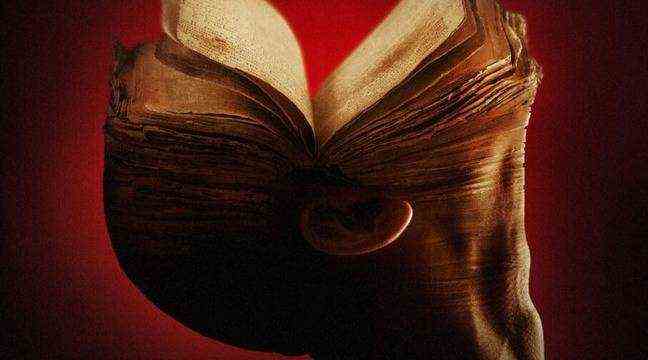If you’ve been planning on making a TV set for Halloween night, and maybe followed the advice from our “It’s Horror” series, you might be watching Candyman Where Hellraiser, two classics of genre cinema, whose influence is still intact today, with, for the first, a remake currently in theaters, and, for the second, a series project by David Gordon Green, already at the helm of new Halloween. What you might not know is that they come from the same awesome, somewhat deranged brain: writer, also writer and director, Clive Barker.
When his news is published Books of Blood in the 1980s, Stephen King called the writer the “future of horror”, and proof that he was right, a film adaptation of Books of Blood has been available since Friday on Disney +. The opportunity to come back to the lesser known but no less important films from the universe of Clive Barker.
“Books of Blood”
In 2009, the film Book of Blood, a.k.a Blood book, by John Harrison already wore two of Clive Barker’s many short stories on screen, the same ones that Brannon Braga is freely adapting today in Books of Blood : a psychologist who tries to contact her deceased son with the help of a young medium, a hitman in search of an invaluable book, to which is added the story of a young woman finding refuge with an old man couple. A priori independent stories but ultimately interconnected for better and, of course, for worse.
“Terror”
Rawhead Rex, Quicksilver Highway, Midnight Meat Train, Candyman … The Blood Books by Clive Barker have been the source of inspiration and adaptation of several genre films, more or less known. Terror, available for purchase and rental, belongs to the second category, and that’s a shame. Directed by Anthony DiBlasi in 2009, Dread, in the original version, tells how Quaid, a student in philosophy, decides with two comrades to make a film to prove his thesis on the buried fears of the human being. The project begins to awaken its own traumas, only to escape it completely. With its theoretical concept, its unhealthy atmosphere and both immediate and cerebral horror, Terror remains in memory even after the film is finished, as if it had made its way under the skin. Brrrr …
“Midnight Meat Train”
Adaptation of a short story from Books of Blood, Midnight Meat Train is also the first film starring Bradley Cooper as well as the first American film by Japanese director Ryuhei Kitamura (Versus). And the result is an artistic miracle, coupled with a waking nightmare. Leon Kaufman is a photographer known for his provocative shots. At the request of a gallery owner and in view of his next exhibition, he plunges into the bowels of the city and discovers that a serial killer is attacking the passengers of the last metro. He decides to follow him, without suspecting what he will discover. The spectator, either, is not ready for this journey to the icy staging and brutal violence. Like Bradley Cooper’s character, he quickly becomes fascinated by what he sees, between attraction and repulsion.
“Cabal” and “The Master of Illusions”
You are never better served than by yourself, right? Three years later Hellraiser, Clive Barker adapts again one of his works on the big screen, the novel Cabal, or the story of young and disturbed Aaron Boone, convinced by his shrink that he is a serial killer. He finds refuge in the cemetery of Midiam, populated by monsters called the Nocturnes. Real freak show, Cabal is considered an artistic and public failure when it was released in 1990, but will become over the years, and after a director’s cut, a cult movie for all fans of Clive Barker and, more generally, of quirks. The film is available, in its two cinema and full-length versions, at ESC Distribution. And a serial project is in development on the Syfy channel.
The author-director knows the same fate, and disappointment, with his third and last film, The Master of Illusions, where the private detective specialist in the occult Henry d’Amour investigates the accidental death of an illusionist on stage, against the backdrop of a fanatic sect. Complex or confused, it depends, the film also had a complicated release, and a truncated version, in 1995, before being rehabilitated with its full version, available from Le chat qui fume.

